Views on Pacifism
by Bruce Daugherty
“Pacifism in the Churches of Christ has had a long and prominent place; yet today it can be found only in the margins of the tradition.”(Casey, Warriors, 159). Michael Casey argues that it was “the extreme pressures of World War I” which began the marginalization of this once prominent point of Restoration theology.(Casey, Pacifism,376-390).
The American Civil War had already demonstrated two views in Restoration ranks concerning a Christian bearing arms for his country. Alexander Campbell’s famous “Address on War,” delivered at Wheeling, Virginia in 1848 expressed the thinking behind his pacifist views: "Their sovereign Lord, the King of Nations, is called ‘The Prince of Peace.’ How, then could a Christian soldier, whose ‘shield’ was faith, whose ‘helmet’ was the hope of salvation, whose ‘breastplate’ was righteousness, whose ‘girdle’ was truth, whose ‘feet were shod with the preparation of the gospel of peace,’ and whose ‘sword’ was fabricated by the Holy Spirit, ever wield the sword of a Hannibal, a Tammerlane, a Napoleon, or even a Victoria?" (Campbell, 374).
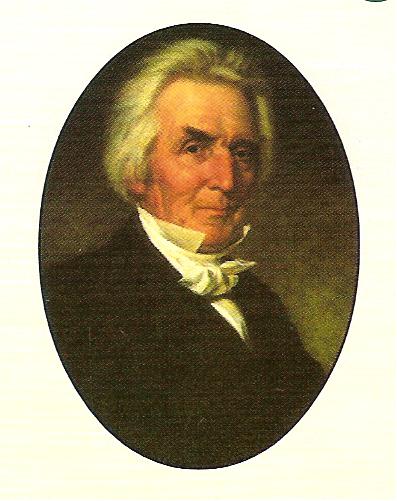
Alexander Campbell
But other Disciples opposed Campbell’s view and gave justification for their bearing arms in the conflict. “If our cause be holy and just, then in serving our country we are serving our God.” (Humble, 236).
To what extent did the six principal Leader editor/writers resist or conform to the “extreme pressures” of two World Wars? This section will seek to answer that question by noting articles favoring pacifism, articles justifying a Christian bearing arms for his country, and articles given by the Leader editor and publisher defending their position on war.
The writings of Flavil Hall, J. W. Shepherd, and A. B. Lipscomb* form the bulk of the pacifist plea during the period in the Christian Leader. All three men had been connected to David Lipscomb as students or collaborators and all three held to the principles that Lipscomb had held regarding war.
Flavil Hall went to hear William Jennings Bryan speak in Atlanta, Georgia shortly after the United States’ entry into the war. Bryan spoke on the subject, “Fundamentals: Man’s relation to Government, to Society, and to God.” Hall expressed his disappointment that Bryan was committed to a greater allegiance to his government than to God, all on account of his politics.(Hall, 1917,6). Hall then stated this was in contrast to the ancient Christians who rendered “passive obedience to human government” but gave their active “individual service to the divine government.” Hall went on to point out that a Christian’s politics should be determined by their “heavenly citizenship” (Phil. 3:20).
In the period during the first World War, Shepherd’s activity as reported in the Leader was occupied in helping his readers know how to obtain exemption from military service and in appeals to the government for help with individuals drafted into service who were pacifists by conscience.(Shepherd, Conscription, 9). But Shepherd’s theology for pacifism did not appear until after the war.
Following World War I, J. W. Shepherd wrote a series of articles entitled, “Should Christians engage in War?” These articles were aimed at helping Christians be loyal to their convictions regarding war in the midst of a sweeping tide of patriotism. “In such an hour the heart of the true disciple turns back to the Great Teacher and seeks repose under the yoke of his authority.” (Shepherd, War no. 1, 4). Shepherd laid out his case like a court argument or debate proposition.
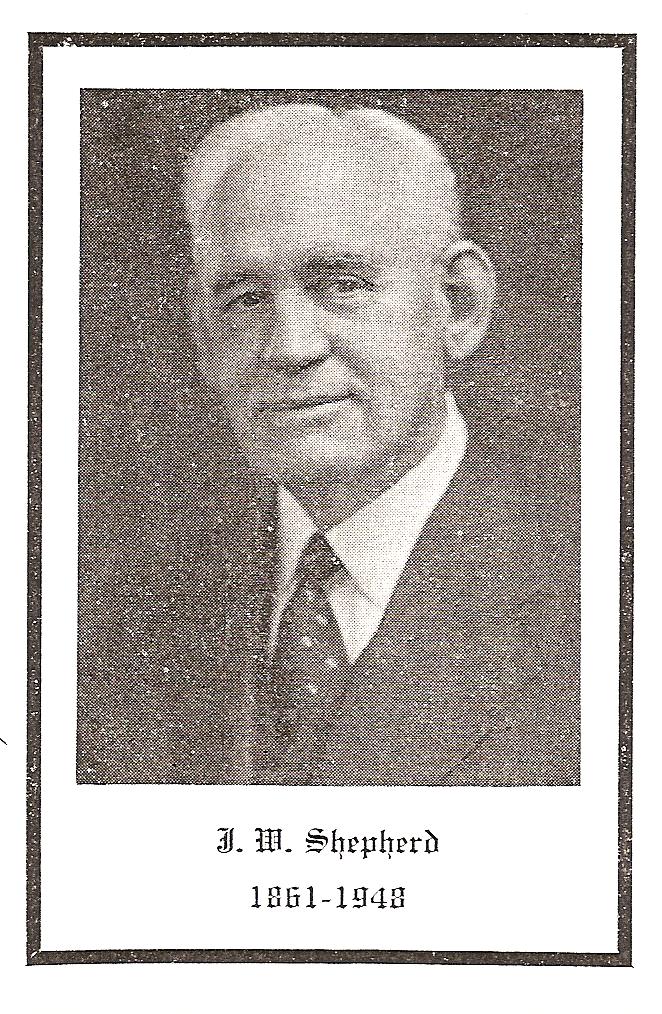
Shepherd pointed out the real question to be considered, “Shall Christians take part in any carnal war?” Questions about who was right, whether war was justifiable according to the code of nations, and whether a Christian could use deadly force to protect his wife and children were not germane to what Shepherd was seeking to answer. To this question “nothing short of a precept or a precedent from Christ or his inspired apostles can give us the warrant which the case demands.” Having introduced the question and the means for answering it, Shepherd made his investigation.
First, Shepherd brought the case of Jesus on earth before his readers. Jesus’ life was the manifestation of the divine power of love (John 3:16; Rom. 5:8-10; and John 6:38). If Jesus had resisted his enemies by the use of physical force, he would have destroyed this principle of love. This principle opposed the principles adopted by sinful men: war, revenge, and retaliation. If these principles were right, then Christ was wrong. The individual who would justify Christians to participate in war condemned the Savior who spoke of forgiveness for his enemies from the Cross (Luke 23:34), “as a coward or a fool.” (Ibid.). Shepherd went on to state that he believed that non-resistance “was necessary in order to develop the new principle of love with which alone the world can be won back to God.” And it was the only way that could make an impression on the human mind and heart. "There was, therefore, a deep moral obligation resting on the Christ to suffer as he did-an obligation as deep as the depths of God’s redeeming love." (Ibid.). Because it was written that “the Christ must suffer” (Lk. 24:46) then there was no alternative. Christ’s suffering was “as necessary as his resurrection” because without this manifestation of love man could never give his heart to God (1 John 4:19). This principle of love embodied in Christ was to be embodied in his followers (2 Cor. 3:18). Therefore, resistance was out of the question for Christians.
With this understanding of how Jesus treated his enemies, his followers can then appreciate the instructions to “avenge not yourselves”(Rom. 12:19-21). For Shepherd, there was no possibility of harmonizing the spirit of war and the spirit of Christ. To attempt to do so would be saying that human law could abolish moral law entirely. "Indeed, this is the climax of rebellion against God, for it is an attempt to dethrone him.” (Ibid.).
Shepherd countered possible objections to this understanding from those who might say that the precept of “love your enemies” was a general principle that did not include emergencies such as national mobilization for war. Shepherd believed it would be difficult to prove this exception from the New Testament. Shepherd stated, "There is, however, abundant evidence in the clause “Be not overcome of evil, but overcome evil with good” (Rom. 12:21), that the precept was never intended to be set aside on emergencies, much less on the ground of the demand of an ungodly world. “Be not overcome of evil,” is a form of expression forever fixing the moral force and permanence of the precept going before." (Ibid.).
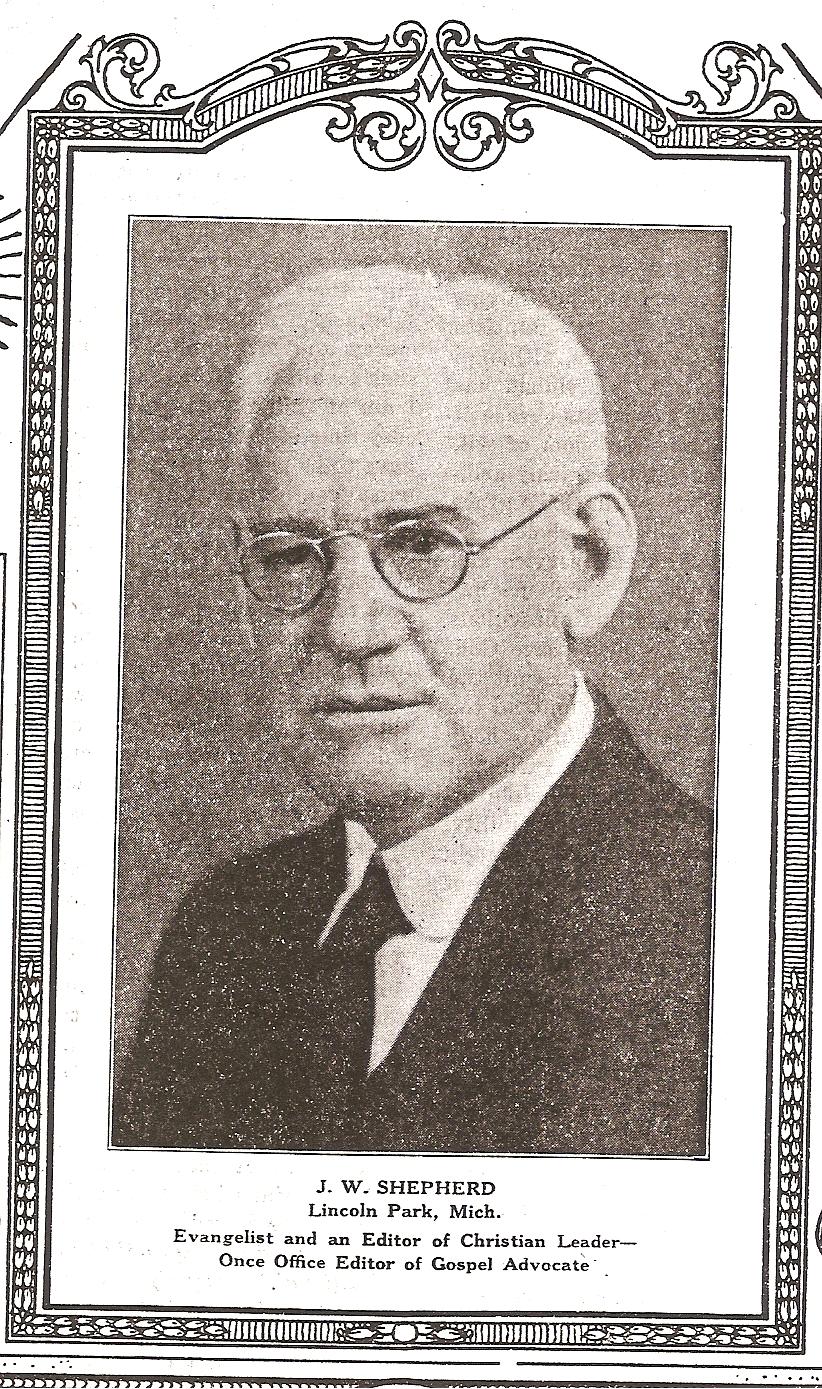
Shepherd continued his case as he turned to the examples of the Apostles. The commission to preach the good news of the death and resurrection also obligated the Apostles “to live and breathe the spirit of their Master.”(Shepherd, War no. 2, 4) The instructions of Jesus to the Apostles during the limited commission (Luke 10:3; Matt. 10:16) spoke of the perils, dangers, and persecutions that would surround the Apostles. Paul’s description of his circumstances (2 Cor. 4:8-11; 1 Cor. 4:9-13) spoke of the faith required “in the lives of those first heralds of the Gospel.” What weapons did Christ put into the hands of his men? “Be ye therefore as wise as serpents and as harmless as doves” (Matt. 10:16). The highest wisdom and the most perfect spirit of harmlessness were to be the only active instruments in their hands by which to avoid the fury of vicious men."(Ibid.).
Christ’s demand for this non-resistant course of action was not for suffering’s sake alone. There is no virtue in pain and suffering alone (1 Pet. 2:20). What could be worthy of a baptism of torture and blood like the Apostles underwent? "Of these, but towering above them all, in unapproachable importance and value, is the spirit of love that brought the Word down in human form into our world to bleed and die for the salvation and glorification of man." (Ibid.). When the Apostles suffered it was because of their regard for the “sacred law of duty, the sanctity of moral principle” more than anything else in the universe. This then allowed the Apostles to “enter into communion and fellowship with Jesus Christ who is the joy and solace of the consecrated heart.” "It is for this consideration alone that Christ demanded the hard duty of suffering on the part of the apostles; that his will might be manifested in them, when it came in contact with the strongest and must undiluted forms of evil-the malicious violence of human passions. Not one of them ever presumed to lift his hand against an enemy. . . . The very reason why Christ suffered in unresisting meekness is the reason why the apostles walked in the same steps." (Ibid.).
To the case he was making, Shepherd added the example of the Church. The Church was under the same obligation of non-resistance as was imposed on the Apostles. Martyrdom was a “fixed fact in the history of the Church in those days when she was chaste and pure."(Shepherd, War no. 3, 4). ”The example of Christ on the cross lay behind the actions of the martyr going to the stake. This was the only way that the followers of Jesus could act when they were “assailed with violence” (1 Pet. 2:20-24). Shepherd believed Christians could avoid their enemies. This was to act with wisdom and prudence. But what was the Church to do when avoidance was impossible?
"The silent, suffering church, from amidst burning flames, from the gibbets, from the ferocious paws of wild beasts-in a word, from admist every danger and form of pain and death, exhibited the calm, meek, gentle spirit of their Lord, who bore the thorny crown and the scourge, and the bitter cross." (Ibid.). The spirit of Christ as portrayed by the prophet Isaiah (Isa.53:7) was the reference Peter used to help the Church know their course of action in response to persecution. The painful suffering of Christians was because of their unity with Christ. “A disciple is not above his teacher, nor a servant above his Lord” (Matt. 10:24). “In the patient endurance of wrong and outrage, the cross was transferred to the church, and the self-denial of the Savior was imposed upon the disciple.” (Ibid.). This was to have fellowship with his sufferings (Phil. 3:10; 2 Cor. 4:10). Shepherd concluded his case by stating, "These three witnesses now brought forward-Christ, the apostles, and the apostolic church-to which could be easily added the generalization of the entire New Testament Scriptures, set forth most clearly the law regulating the conduct of the follower of Jesus Christ towards his enemies." (Ibid.). In addition Shepherd stated that there was “no example, no precept, no utterance” in the New Testament to which those seeking justification for war under any circumstances could appeal.
The next year, Shepherd compiled quotations from the early Church Fathers into four articles entitled, “The Early Christians And Their Relation To World Government and War.” Shepherd explained his reasons for giving these quotations with his readers. "It has often been affirmed that Christians, during the first three centuries, would not under any circumstances engage in carnal warfare; but very few citations have been given in proof thereof. During the last few years I have given much time to research on the subject, and many brethren have requested me to publish the result of my work. I gladly comply with the request, believing it should be given as wide publicity as possible." (Shepherd, Early, 4). Shepherd shared the views of Ignatius, Justin, Tatian, Irenaeus, Athenagoras, Tertullian, Clement of Alexandria, Origen, Cyprian, and Lactantius with his readers. Shepherd gave no comment or conclusion to his testimony of the fathers on war, but Flavil Hall praised Shepherd’s research and shared his opinion of the testimony and what it meant for him and his relationship to the Leader. "If a preacher or two should succeed in getting me silenced in the Leader on this subject, I shall be silenced on other subjects and will have to bid my readers farewell. I do not ask for space to make a hobby of anything, but must be allowed to teach the truth on any subject of leading importance when occasion demands, especially a subject on which eminent editors of the Leader and I are agreed." (Hall, 1921, 6).
Ira Moore promoted the cause of peace in some of his editorials. Moore declared, "The most eloquent and convincing thing I have ever seen on the question that is now agitating so many members of the Church, and that is, Should Christians take up arms in carnal warfare? is the address of Bro. Alexander Campbell at ‘Wheeling, Va.,’ in 1848, on that subject, and which is to be found in the book entitled, ‘Popular Lectures and Addresses.’ To my mind the argument is simply irrefutable. The lecture should be put in tract form and distributed generally." (Moore, 1918, 4).** Moore went on to share his disappointment that Bethany College had announced that “hereafter all male students will receive a military training under the instruction given by a teacher furnished by the government.” (Ibid.). Later Moore would browbeat the Christian Standard for what he saw as their inconsistency in first promoting the war, then afterwards clamoring for disarmament.(Moore, 1921, 4).
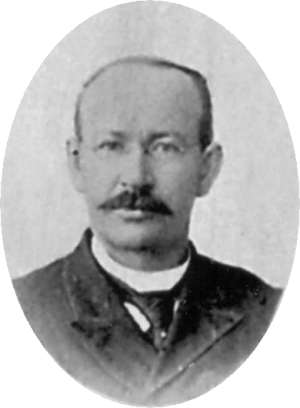
Moore again laid the war question before his readers in 1934. He stated, “The very genius and spirit of Christianity as forecast by the Prophets of God is the very opposite of the war spirit.” For proof of this Moore referred his readers to Isaiah 2:2-4. Moore believed that if all people everywhere were to obey Christ and be “such Christians as they should be” . . . “there would be neither ‘civil’ nor ‘world wars.’” Moore went on to unequivocally state, “We answer the question at the head of this, quite positively, CHRISTIANS ARE NOT ALLOWED BY THEIR MASTER TO ENGAGE IN CARNAL WARFARE.”(Moore, Allowed, 4). As an additional proof, Moore cited Zechariah 9:9-10. He then explained the meaning of the passage and its relation to the war question. "But the prophet says the king that was to‘come riding on an ass’ would have no use for the ‘chariots of Ephraim’ nor for the ‘horses of Jerusalem,’ nor for the ‘battle bow.’ ‘The scepter of uprightness was to be the scepter of His kingdom,’ and that scepter is ‘the sword of the Spirit.’ If Jesus our Captain was not to enlist the habiliments of carnal warfare in the establishment and propagation of his dominion and Kingdom, his subjects are under the necessity of turning traitor to him and his cause if they decide on taking up arms in cruel warfare."(Ibid.).
T. Q. Martin did not write much on the subject but he did oppose J. J. Vanhoutin’s defense of bearing arms for one’s country. Martin asked the veteran preacher, “But if Christians advocate carnal warfare, then from what source can we expect peace?” (Martin, Bro. V., 5). Martin went on to state, “I have not a word to say against the sincerity of our brother’s convictions, but I most certainly believe that the teaching in his article runs counter to the teaching of the ‘Prince of Peace.’” In another article replying to Vanhoutin, Martin stated why he opposed war. "The one question before us is the teaching of the Christian’s guide book upon carnal warfare. I do not think I am blinded, yet I fail to find one passage in the New Testament that can be made to encourage Christians to engage in carnal warfare."(Martin, Article, 5).
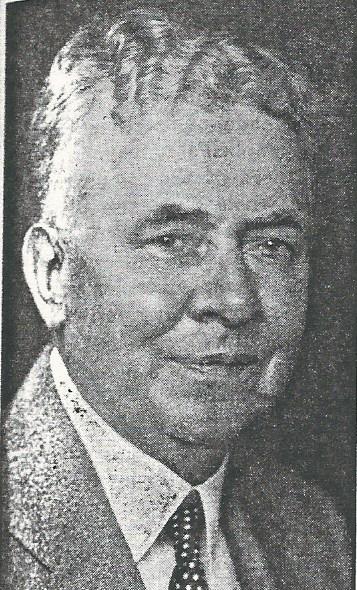
In a later article written in the looming shadow of the second World War, Martin pointed to the failure of many Christians. "To become Christians we must become Christ-like. We must, in reality, follow him, and in so doing we crucify our lusts, and thus kill the spirit of carnal warfare. ‘And they that are of Christ Jesus have crucified the flesh with the passions and lusts thereof.’ (Gal. 5:24). The spirit of Christ and the spirit of carnal warfare are as incompatible as Hell and Heaven." (Martin, Peace, 5). Martin called for strong measures in favor of peace. “The spirit of Christ is opposed to carnal warfare, and now is the time for every local congregation to go on record as un-alterably opposed to carnal warfare.” Martin called on Christians to choose. “We are at a parting of the ways. It must be religion or ruin; revival or revolution. Back to Christ or on to destruction.”(Ibid.).
Publisher Fred Rowe also held a pacifistic position, but in moderation. Rowe stated, "I am not a believer in war, nor do I like to see a young Christian man enter the service - either voluntarily or by conscription - but I regard this war as simply a necessary evil that must be handled by our nation, as a nation, if we expect to continue as a nation."(Rowe, 8).
But not all the Leader men were pacifists. Thad Hutson squarely opposed a view of Romans 13:1-6 which would prohibit a Christian from bearing arms for defense of his country or using deadly force while serving as a policeman. Hutson decried preachers who accused those who bore arms in the war as being “guilty of murder.” Hutson did not believe that the American boys who died in France or policemen who arrested thieves and mobsters were “avenging themselves.” Hutson passionately responded to such preaching: "Let those who have a conscience against preserving our liberties and defending our homes against licentious and bloodthirsty invaders have all the glory which belongs to them, but of the noble boys who were made stone blind by the fumes of poisonous gas, who were maimed, crippled and nerve shocked for life, those who died not in kings’ palaces nor slept on beds of down, but died in the trenches, in the mud, where the rats and vermin covered their precious forms –oh, do not tell me they did all this simply to ‘avenge themselves.’ Such talk is pitiable and weak." (Hutson, 1918, 8). Though their articles were in a decided minority, a few others added their voice to Hutson’s with their reasons justifying a Christian bearing arms.(Sommer, 2 and Klingman, 4-5).***
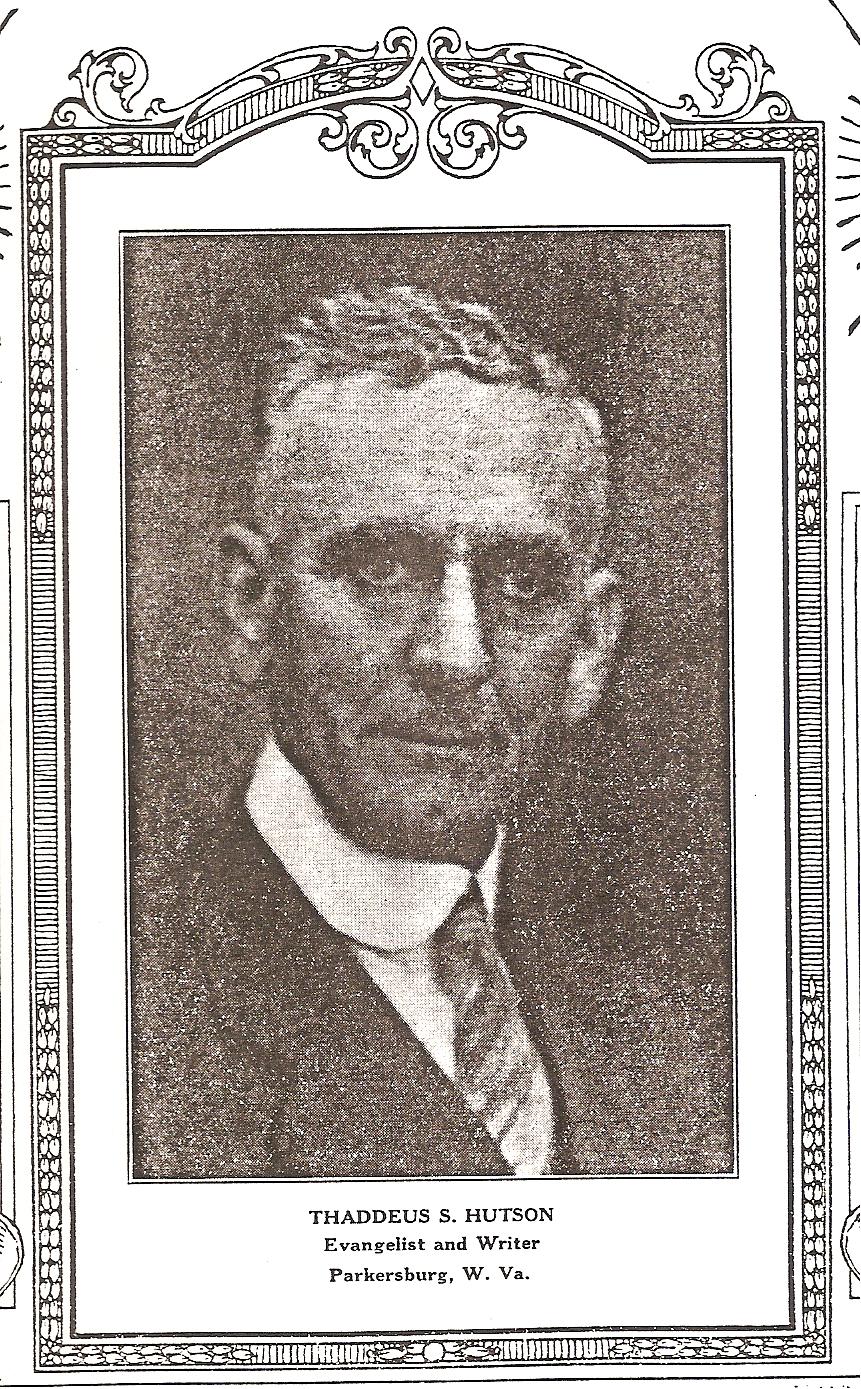
Thad Hutson also wrote of pressures that pacifists faced in the country in April, 1918. "It is not safe now to talk peace, nor speak of the war as though our country should back out of it. Or to reflect on the purpose to carry the issue to a definite finish and to a safe peace. Whatever may be the feeling along this line, if you are not with your country let your words be few and speak to yourself. Our Government regards it as treason to speak or write against our country’s interest in the world war."(Hutson, 1918, 9). By way of analogy, Hutson used this opening to exhort Christians not to compromise the gospel for the sake of peace at any price.
This pressure was felt by Fred Rowe as he related the position he felt compelled to take in the Leader. After receiving a letter from “an estimable preacher in the South” who reported about a government search of him and his premises for anti-war articles, Rowe stated that the letter ". . .will help to explain the position of the publisher of every paper in the country in defending the integrity of the Government. This is not a time for any of us to publicly raise any objection to our Government’s participation in the war, and certainly not a time for any of us to place any hindrances in the way of our Government’s carrying the war through to a successful termination. The only course open to any of us is to be literally, “subject to the powers that be,” during this present crisis. When peace is again restored the question of war and our relation to war can be discussed with perfect freedom." (Rowe, Warning, 5).
Ira Moore defended the stance of the editors and publisher as he explained, "It is a misrepresentation to talk of the Leader having a “war policy,” as if it have been an advocate and defender of the proposition that Christians should take up arms in carnal warfare. We thought it better to withhold outspoken opposition to taking up arms than to incur the displeasure of government officials and have the Leader suspended entirely. Besides, while editorially opposed to Christians taking up arms in carnal warfare in general terms, we recognized it as a fact that there are two sides to the question, and good conscientious brethren on both sides of it; and that it is a question whether we had “turned the other cheek also” as a nation.****
When asked why he wrote on the subject of war after the war was over, Flavil Hall replied, “Christians must be taught ‘in season and out of season,’ the principles enunciated in the Sermon on the Mount and all through the New Testament or they will repudiate the teaching of Christ, will grow intolerant and the spirit of mob violence will seize them when the country is plunged into war, no matter for what cause.” (Hall, Peace, 6).
The section on pacifism reveals that the men associated with Lipscomb: Hall, Shepherd, and Martin remained pacifists. It is also interesting to note that two men who held that a Christian could be involved in civil government, Moore and Rowe, were also pacifists, even though they might have arrived at the conclusion by a different theological path. Thad Hutson is the lone voice among the Leader editors upholding the right to bear arms for one’s country.
Works Cited
Campbell, Alexander. "Address on War" Millennial Harbinger 18 (1848): 374-
Casey, Michael. "Warriors Against War, The Pacifists of the Churches of Christ in World War II" Restoration Quarterly 35 (1993): 159-74.
___________. "From Pacifism to Patriotism: the Emergence of Civil Religion in the Churches of Christ during World War One" Mennonite Quarterly Review 66 (July 1992): 376-90.
Hall, Flavil J. "Field Notes and Helpful Thoughts" Christian Leader 31 (Apr. 17, 1917):6.
__________. "Field Notes and Helpful Thoughts' Christian Leader 35 (Jul. 12, 1921):6.
__________. "Ministers of Peace in the World's Conflicts" Christian Leader 34 (Mar. 23, 1920):6.
Humble, Bill J. "The Influence of the Civil War" Restoration Quarterly 8 (1965):233-47.
Hutson, Thad. "Considerations" Christian Leader 34 (Nov. 2, 1920):8.
__________. "Considerations" Christian Leader 32 (Apr. 16, 1918):9.
Klingman, George. "Query Dept. - Is War Murder? Should Christians Go to War?" Christian Leader 31 (Dec. 25, 1917):4-5.
Martin, T. Q. "Bro. Vanhoutin's Article" Christian Leader 37 (Oct. 16, 1923):5.
__________. "That Article" Christian Leader 37 (Nov. 20, 1923):5.
__________. "World Peace" Christian Leader 48 (May1, 1934):5.
Moore, Ira C. "Editorial Brevities and Comments" Christian Leader 32 (Aug. 6, 1918):4.
__________. "Editorial Views and Reviews" Christian Leader 35 (Jul. 19, 1921):4.
__________. "Are Christians Allowed by Their Master to Engage in Carnal Warfare?" Christian Leader 48 (May1, 1934):4.
__________. "Editorial Brevities and Comments" Christian Leader 33 (Jan. 7, 1919):4.
Rowe, Fred. "Statement by the Publisher" Christian Leader 32 (Jan. 8, 1918):8.
__________. "An Official Warning" Christian Leader 32 (Jun.11, 1918):5.
Shepherd, J. W. "Christians and the Conscription Law" Christian Leader 31 (May 29, 1917): 9.
___________. "Should Christians Engage in War? no. 1" Christian Leader 34 (Jun. 15, 1920):4.
___________. "Should Christians Engage in War? no. 2" Christian Leader 34 (Jun. 22, 1920):4
___________. "Should Christians Engage in War? no. 3 Christian Leader 34 (Jun. 29, 1920):4.
___________. "The Early Christians and Their Relation to World Government and War" Christian Leader 35 (May17, 1921):4.
Sommer, Fred. "Should Christians Go to War?" Christian Leader 31 (Apr. 3, 1917):2.
*A. B. Lipscomb, nephew to David, contributed several articles to the Leader on the subject. Since he was not one of the primary men being studied, I have not included his views in the body of the paper. Three of his articles are "In Times of Peace Prepare for War" Christian Leader 47 (Jun. 13, 1933):5-6; "Some Echoes from the Anti-War Resolutions" Christian Leader 47 (Oct. 31, 1933):5; and "More Echoes from Valdosta's Anti-War Resolutions" Christian Leader 47 (Dec. 12, 1933):5.
**Campbell's "Address on War" was reprinted in Christian Leader (Dec. 21, 1937):1,3, 10-11.
***Of the approximately 120 articles on this subject from 1914-1938, only 13 defend the right to bear arms.
****Evidence of the division on the issue was the printing of four tracts by Rowe Publishing, two of which argued a pacifist position authored by Moses Lard and H. Leo Boles. The other two tracts were written by George Klingman and John Shackleford, justifying Christians serving their country in war. Advertisement Christian Leader 33 (Aug. 5, 1919):11.
